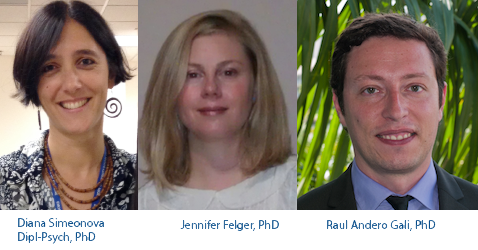The Brain & Behavior Research Foundation has announced three new two-year NARSAD grants to Emory University researchers, totaling $180,000. The awards were among 200 made this year totaling $12 million.
The Foundation, the nation's largest private charity funding mental health research, was previously known as NARSAD or the National Alliance for Research on Schizophrenia and Depression. Since 1987, the Foundation has invested over $320 million in research to identify causes, improve treatments and develop prevention strategies for a broad range of psychiatric disorders.
Emory has been a major beneficiary of the Foundation's research support, receiving almost $6 million in grants to 69 grantees since the organization's inception.
The NARSAD Young Investigator Grants are designed to allow early career scientists to gather pilot data to support innovative approaches and support their transitions to performing independent research. This year, all the award recipients are in the Department of Psychiatry and Behavioral Sciences:
- Assistant professor Diana I. Simeonova, Dipl-Psych, PhD, will focus on early determinants of resilience to and risk for psychopathology in infants of mothers with bipolar disorder. The study will assess social-emotional development, resilience and oxytocin (a natural hormone involved in emotional bonding) in this high-risk population. The work aims to contribute to the development of novel early intervention and prevention approaches for mental illness. Simeonova recently received a K23 Career Development Award from the National Institutes of Mental Health for research in the same area.
- Assistant professor Jennifer C. Felger, PhD, will examine changes in brain circuitry that may underlie inflammation-related anhedonia in patients with depression. Recentevidence suggests a cause-and-effect relationship between inflammatory chemicals called cytokines and symptoms relevant to a number of psychiatric illnesses. This study will seek to establish brain biomarkers of inflammation that can be used to assess therapeutic strategies to reverse inflammatory effects on the brain and behavior.
- Research associate Raul Andero Gali, PhD, will expand his studies of Tac2, part of a biological pathway that regulates fear memory formation. His studies indicate that drugs that block Tac2 can block fear memory consolidation, and thus may be candidates for therapeutic intervention to prevent the development of PTSD (post-traumatic stress disorder).

